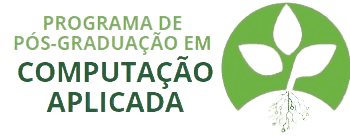This Extension Project has as main objective to awaken the interest of secondary students in the careers offered by the Agricultural Engineering, Science and Technology Sector (SECATE), which include: Material Engineering, Food Engineering, Civil Engineering, Engineering in Computing, Software Engineering, Agronomy. y Animal Science. The strongest relationship between the University and Secondary Schools demonstrates the possibilities of interaction that can and must exist. The activities proposed in this Program have the objective of encouraging students to understand and experience the course they will undertake in Higher Education, before enrolling there. University, allowing him to awaken his critical sense, so that he can make decisions, enabling him to choose a profession. The activities carried out include charlas, technological experimentation workshops, scientific fairs. The development of this Program takes place in secondary schools in Campos Gerais and at the University, using the Technological Hall and SECATE course laboratories as spaces.
Its objectives are to carry out activities that aim to encourage high school students to understand and live the careers offered by the Agricultural Engineering, Science and Technology Sector (SECATE) of the UEPG, allowing them to awaken their critical sense, so that they can make decisions , enabling you to choose a profession.
More information on the project website
The adoption of advanced technologies in agribusiness is a challenge for small and medium-sized producers, due to financial barriers, lack of knowledge and limited rural infrastructure. This scenario compromises the competitiveness and sustainability of these farmers, who face difficulties in implementing solutions such as satellite monitoring, drones and agricultural management software. The proposed project seeks to overcome these limitations by integrating computational practices and accessible technologies, with ongoing training and technical support, to optimize productivity, reduce costs and promote environmental and social sustainability in the agricultural sector.
With the involvement of the Postgraduate Program in Applied Computing and AGIPI, the project combines scientific knowledge and technological innovation, promoting solutions to specific challenges, such as crop forecasting and resource management. Direct impacts are expected, such as increased income and quality of life for producers, and indirect benefits, including local socioeconomic development, improved health and education, and incentives for environmental sustainability. Thus, the project aims to transform agribusiness into a more inclusive and competitive model, integrating small and medium-sized producers into the global market.
More information on the project website
